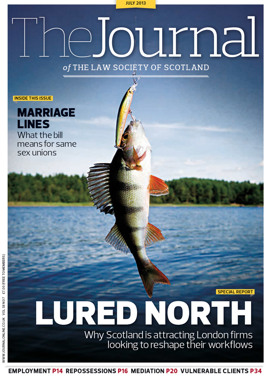How not to win business: a guide for professionals

If you washed up here in search of enlightenment and glanced at the title, I expect you are pondering a question something like: At which institution did this fellow receive his PhD in the bleeding obvious? Bear with me.
For it is a truth universally acknowledged (or if it isn’t, it certainly should be) that the greatest single cause of professional people missing out on business is that they fail to ask for it. Why so? There are no reasons, but a number of excuses loiter with no intent, including: “I am playing a long game.” “The time/place/occasion/temperature/decor wasn’t right.” “It’s vulgar to ask.” “They know I’m here if they want me.” “I don’t want to look pushy.”
These lame responses are covers for the real reason why we duck the question – fear of rejection. Picture, if you will, a typical scene. A solicitor is entertaining a prospective client to lunch. The linen is crisp. Cutlery and glass sparkle. The set menu, which our host hopes fervently will be preferred to the à la carte, is not actively hazardous. Over starter and main, conversation turns to affairs of the day: how busy one is (here, the salt may come in handy), holidays, sport, why all banks are run by people of uncertain parentage, the horrific cost of children/everything, and sundry other matters.
Above these proceedings, a giant, invisible elephant looms despondently. Coffee comes and goes. Fond farewells are exchanged and separate ways taken. Fuming, our host trudges back to his lair. “Waste of time! Not a peep about instructing us!” The victim, digesting both lunch and the utter pointlessness of it wonders: “What was that about – don’t they want my work?”
Earlier in this series, I noted that one of the reasons rainmaking is so difficult is that rejection is inevitable and feels very personal. It may be natural to feel reticent, but it is also untenable. What is the cure? To say “Just toughen up” is too simple.
It helps to know three things. First, if you meet someone in a business context, however informal, provided they have a level of sentience marginally greater than plankton or a Big Brother contestant, it will be obvious that the possibility of them becoming a client will be on your agenda. It may be a tough task to convince them, but by agreeing to talk they have signalled that at least they are open to persuasion.
Secondly, because most people depend directly or indirectly for their living on goods or services being sold for profit, they will see nothing vulgar in you doing it. On the contrary, they will expect it and think you naive or idle or that you obviously have too much money, if you do not.
Thirdly, if you are rebuffed, nobody dies. A “no” today may not mean “no” forever, and often the most valuable lessons are learned through tears.
I end on a lunch-related note with this insightful Chinese proverb: “Man who waits for roast duck to fly into mouth, must wait a very, very long time.”
In this issue
- Credit hire: back to basics
- You know who I mean
- Behind all the fun
- Your Future in Law
- Reading for pleasure
- Opinion column: Cameron Fyfe
- Book reviews
- Profile
- President's column
- Mapping out the Crofting Register
- Back office bait
- Another bite at the cherry
- Security of your home
- Marriage redefined
- Building better business cultures
- Keeping a rein on child cases
- Minimum gain
- Beware LLP tax changes
- Framework remodelled
- Scottish Solicitors' Discipline Tribunal
- A Scottish ILG chair in New York
- Beneath the surface
- Being alert to the needs of the vulnerable
- Sins of our leaders
- How not to win business: a guide for professionals
- Litigation: a tight ship?
- Ask Ash
- Why sep rep?
- From the Brussels office
- Law reform roundup
- Diary of an innocent in-houser






